Thank you for downloading this Simon & Schuster eBook.
Join our mailing list and get updates on new releases, deals, bonus content and other great books from Simon & Schuster.
C LICK H ERE T O S IGN U P
or visit us online to sign up at
eBookNews.SimonandSchuster.com
Contents
For Edwina and Ashley and India, with my love


1

M y father could trace his roots back to the ninth century. Through forty-one generations, he was able to recount the lives of our ancestorsroyalists, rebels, and saints. He never tired of telling me that it was extremely rare for a family to be able to cite two canonized antecedents. The first, he would say proudly, goes way back to the thirteenth century. St. Elisabeth of Hungary was a gracious princess who secretly gave alms to the poor. Her husband didnt approve of this and, one morning, ordered her to remove the cover of her basket. AndI loved the ending of this storyher forbidden bread had miraculously turned into roses.
The other was your great-aunt Ella, Grand Duchess Serge of Russia, who, following her husbands assassination, became a nun and worked tirelessly among the poor and sick of Moscow. In 1918, when she, the chief nun, three young princes, a grand duke, and a lady-in-waiting were thrown down a mine shaft by the Bolsheviksalong with a few hand grenades for good measurewitnesses heard her clear sweet voice singing Hail Gentle Light and other hymns of fortitude to her fellow victims. Before she died, she tore up her nuns veil to provide bandages for the princes wounds.
Now known as St. Elisabeth of Romanova, my great-aunt is one of twelve modern saints preserved in sculpture above the West Door of Westminster Abbey. It was hard to keep track of my fathers long line of relatives, but as he loved lists and charts and stories, he was always ready to bring them to life. For many generations his ancestors had been rulers of the Grand Duchy of Hesse in Germany, a landlocked territory far from the coast. It was his father, Prince Louis Alexander of Battenberg, who changed all that and altered the course of the familys path. In 1868, at the tender age of fourteen, beset by dreams of a seafaring life, he surprised everyone by announcing that he was leaving home to set sail. In fact he was so determined to become part of the greatest navy in the world that he took British citizenship, eventually rising to the top job of First Sea Lord and Admiral of the Fleet. He didnt cut off his ties with Europe completely, though, falling in love with his cousin Princess Victoria of Hesse, a sparky, independent-minded granddaughter of Queen Victoria, who was related to most of the royal courts in Europe. In those days it wasnt always an advantage to have family members scattered across Europe, and during the First World War his mother found herself on opposite sides to her brother and sister. Luckily, my father always said, while patriotism was intense, it never undermined strong family affections.
My grandparents married in 1884 and lived variously in England, Germany, and Malta. My father, also Prince Louis of Battenberg but known as Dickie, was born in 1900, the youngest of four children. The aging Queen Victoria held him at his christening and he wriggled so much that he got her full square in the face with a fist and a foot, knocking off her spectacles. He always told me that at only a few weeks old, he couldnt possibly have known he was to be seen and not heard while in the queens arms.
My father was blessed with enlightened parents. His mother in particular thought that children should not only be seen and very much heard but that they should also be exposed to new ideas and the classics. She kept meticulous records of the books she read and was always keen to try new experiences. Passionate about cartography, she worked for many years on a detailed geological map of Malta, participated in archaeological digs, and rather daringly, scooping up my father to provide the required extra weight, flew in a zeppelin airship and a very early model of a biplane, even though, as she said, it was not made to carry passengers and we perched securely on a little stool holding on to the fliers back. Coming from a line of progressive thinkers, she taught my father herself until he was ten years old, gifting him an education that was thorough and polymathic. She taught him to be open-minded, methodical, and thorough, and above all encouraged him to enjoy learning, to inquire. Later, when I got to know my grandmother, I could see how entirely free of prejudice she was, how interested she was in all that was around her, and just how much of an influence she had had on my fathers refreshing way of viewing the world. She was to be an inspiring force in my life.
A month before his tenth birthday my father was sent to Lockers Park prep school in Hertfordshire, and two years later he entered the Royal Naval College at Osborne. As war became inevitable, at the beginning of 1914, his German-born father was forced to retire from the Admiralty as first sea lord because of the anti-German hysteria at large in the country, scurrilous newspaper headlines whipping people up into a frenzy of hatred. My grandfather resigned, even though the navy was solidly behind him, and this episode had a profound effect on my father, who vowed to succeed to the position of his wronged father. Then, during the war, when King George V decreed that the royal family should anglicize their name, choosing Windsor, my grandfather changed his from Battenberg to Mountbatten. The king created him the Marquess of Milford Haven, having offered him the title of duke, but, practical to the last and looking around him at the grandeur of the English nobility, he calculated that as his savings had been decimated in the German economic downturn, he simply didnt have the wealth that would be expected of him with that rank: an English duke had to maintain a grand style of life. My father also ceased to be the younger Prince Louis of Battenberg and received the courtesy title of Lord Louis Mountbatten.
During the First World War, my father joined Lord Beattys flagship HMS Lion as a midshipman, and later he was appointed first lieutenant of a small ship, HMS P31, and for a time, aged only eighteen, he found himself in command of a crew of sixty. Through Princess Mary my father contrived that King George V should come on board during the Peace Pageant on the Thames. He saluted smartly as the monarch came aboard. Hello, Dickie, said the king jovially, hows Chicken Bella? The fact that his sovereign remembered the stupid doll he had had as a two-year-old mortified the nineteen-year-old second in command and exposed him to remorseless teasing.
The Admiralty now sent the war babies who had been unable to complete their education to Cambridge University, and my father went with both Prince Albert and Prince Henry. They all led a wildly social life, falling in and out of love between studying. Tall, with the good looks of a Hollywood film star, my father was very much in demand. He was also in demand from the royal household, accompanying the Prince of Walesthe future King Edward VIIIas his personal aide-de-camp, on tours including Australia and, later, India and Japan.
Grace Kelly once confided that she had always kept a photograph of my father before she met Prince Rainier. Mrs. Cornelius Vanderbilt, a fiercely rich American society hostess, nicknamed the Kingfisher for her relentless cultivation of European royalty, singled my father out as the perfect suitor for her only daughter. When she invited him to a tea party on her yacht off Cowes, my father was immediately smitten, falling helplessly in love at first sight. Only it wasnt quite as Mrs. Vanderbilt had intended, for on board that afternoon was a gathering of young ladies, including Edwina Ashley, an effortlessly glamorous heiress, who had recently learned to stand with her hips pushed slightly forward, the very image of beau monde chic. With one hand on her slender hip, the charms of her gold bracelet glinting off the other in the sun, my father was at once dazzled and delighted. Although they had met a couple of times previously, they began to court in earnest, and when my father went to India with the prince, Edwina followed him, staying at the Viceregal Lodge. It became obvious to all that they were very much in love, so much so that the Prince of Wales lent them his sitting room so that my father could propose.
Next page
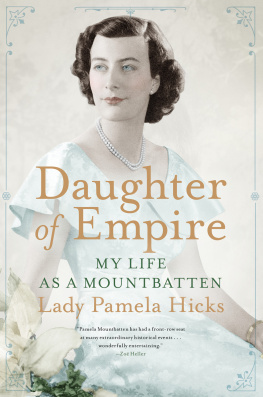


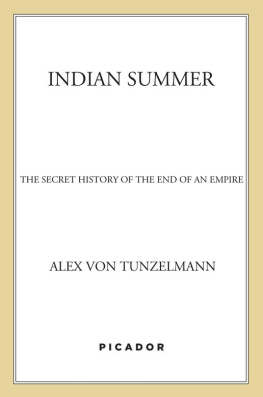
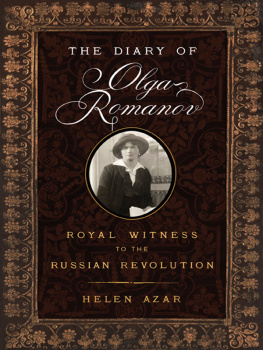
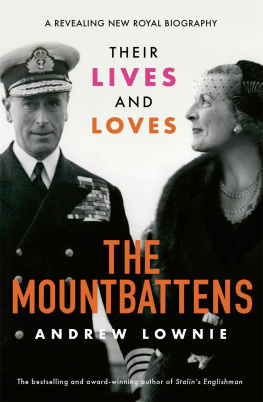
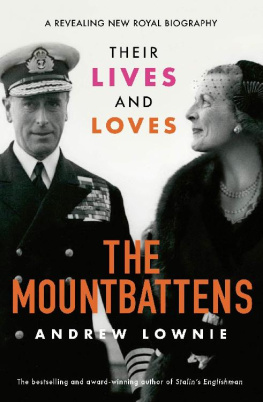
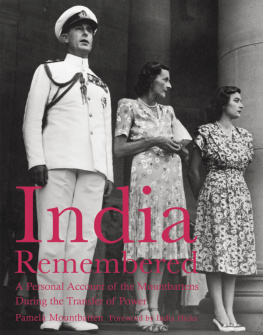
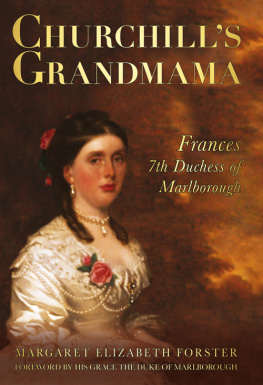


 1
1 